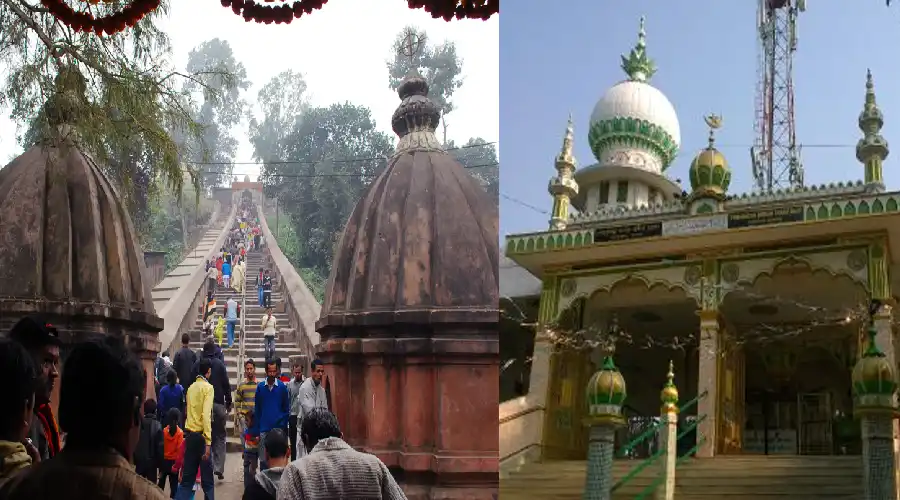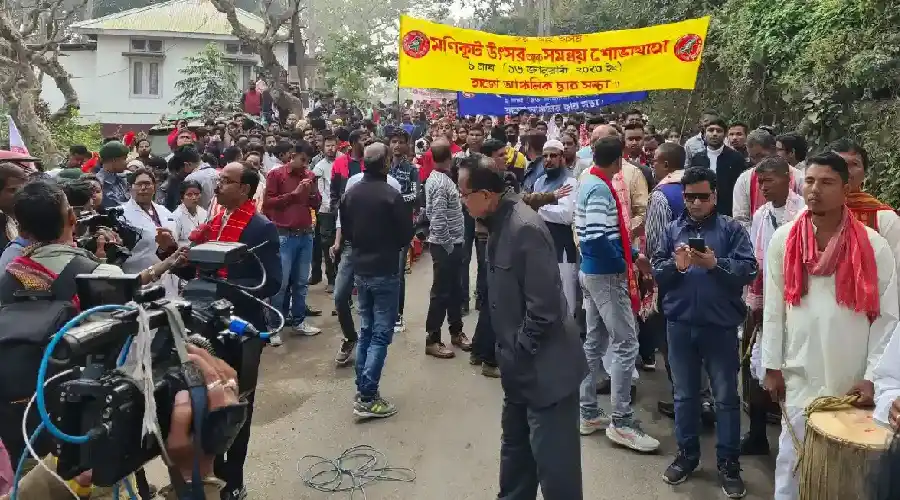.webp)
Ariful Islam/Hajo
Soon after the demolition of Babri masjid at Ayodhya, the All Assam Students’ Union (AASU), organized the Manikut Festival In Hajo, a town located 24 kms west of Guwahati, in 1993. It was a harmony march and started as a show of unity among different communities of Assam.
The procession and festival in the small town which is considered Assam’s ‘oasis of communal harmony’ is symbolic of how residents of this sacred place have learnt to live in peace, notwithstanding differences and communal conflict that rose in the wake of the demolition.
After nearly three decades, the Samanya procession at the Manikut festival is held each year without any disturbance. The festival will be held again in Hajo in December.
Every year on the first day of Magh month (Samvat calendar), the people of Hajo give a blow to the divisive forces of society by demonstrating that Assamese are always united. The Khadim of Powamkka and the Dalai (Priest) of Hoygriva Madhava temple also participated in the Samannya procession on the occasion of the Manikut festival and greeted each other.
The historic Hoygriva Madhav Temple and Powamka Dargah are located in the city of Hajo.

The temple and mosque of Hajo, Assam
The month-long traditional festivals of 'Urus Mela' and 'Ma' are held at the historical Powamkka Dargah and Hoygriv Madhav Temple in Hajo from the 1st of Magh. Its aim is to spread the great ideal of peace, harmony, and harmony above religious narrowness.
The Dalai Lama of the Hoygriva Madhava Temple told Awaz-The Voice about the Manikut festival and the Samannya procession. "The harmony we have in Hajo is not today's, it is very old. We were also ruled by Koch kings, Mughals, and Ahoms. We have had our harmony since that time Therefore, it is important to take into consideration the fact that the present situation of the country is not the same as the previous situation. Therefore, it is important to take into consideration the fact that the present situation of the country is not the same.”
"The example of Hajo should be accepted by the whole of India. We have always been and are above religion. I think there has never been any discrimination based on religion here. We indigenous Hindus and Muslims have lived here in harmony "We have always been together and will continue to be together," he said. "We have always been together and will continue to be together,” he added.
 People in Hajo participating in the Manikut festival and Samannya procession
People in Hajo participating in the Manikut festival and Samannya procession
The city's city council has also decided to hold a meeting to discuss the issue of the city's budget.
ALSO READ: “There are no FIRs in our village,” Fauji Khan of Haibatpur Village
There are different types of dances, including jhum dance, Bagrumba-Kherai dance of the Boro ethnic group, humans dressed as Jairam Das sitting in a vehicle called 'Sati Jaymati and Jerenga Pathar', and some young women wearing leaf and velvet costumes.
The scene of thousands of people participating in the procession is truly beautiful as every family stands in the courtyard waving their hands
